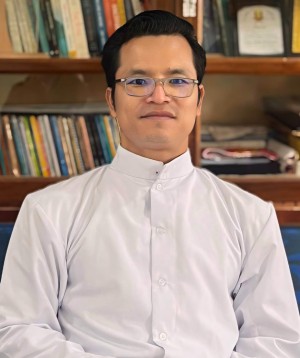Articles
Why Pope Francis couldn’t visit India
Opinion | Articles | Leivon Albert Lamkang | 24-Apr-2025

His presence here could have been a moment of healing and recognition. It would have signalled that religious pluralism is not just tolerated in India—it is honoured.
In diplomacy, sometimes what doesn’t happen is as telling as what does. The recent news—though not officially confirmed—that Pope Francis was unable to visit India because of a lack of invitation from the Indian government is one such moment (Maktoob Media, 2025, April 22). On the surface, it may seem like a minor procedural issue. But sociologically, it points to a deeper process of symbolic exclusion—what we understand as othering. Edward Said (1978) argued that othering is not just a matter of physical separation but a mode of thinking and power that defines who is central and who is peripheral.
In this case, the decision not to invite the Pope—who leads over a billion Catholics worldwide and shepherds a historically embedded and active Christian community in India—feels like more than a bureaucratic lapse. It’s a decision that subtly yet powerfully reaffirms who counts in the national imagination and who doesn’t. Stuart Hall (1997) adds that representation is fundamentally about power. When a group is not seen, not heard, or not publicly acknowledged, it is not just excluded—it is silenced.
Dalit and tribal Catholics in India already face multiple layers of invisibility. The absence of a papal visit may not directly target them, but it reinforces a broader structure in which their identities and contributions remain largely outside the frame of state recognition.
Sociologist Zygmunt Bauman (1991) used the idea of the “stranger” to describe those who are part of society but never fully belong. This resonates with the experience of Indian Christians, especially in places like Manipur, where ongoing violence and displacement have further marginalized the community. Despite their visible service in education, health, and social outreach, they often remain absent from dominant public narratives.
A papal visit would have mattered—not just for Catholics, but for the country. Pope Francis is known globally for his advocacy of peace, interfaith dialogue, and ecological justice. His presence here could have been a moment of healing and recognition. It would have signalled that religious pluralism is not just tolerated in India—it is honoured. Instead, the silence stands as a message. As Gopal Guru (2000) has noted, exclusion in India often works through the quiet, everyday denial of presence. It’s not always violent or overt. Sometimes it is the door that is simply not opened.
And yet, the Church continues its mission. It does not depend on political affirmation to serve, teach, and accompany the most vulnerable. But that does not mean it is unaffected by this kind of silence. Persistent neglect undermines the credibility and prominence of its public voice. The real question here is about belonging: Who is seen as a full member of the national family? And who must continue to knock from outside?
____________________
The author is a priest in the Archdiocese of Imphal and a Research Scholar in Delhi School of Economics. Views expressed are personal
Courtesy: EastMojo
Leave a comment
